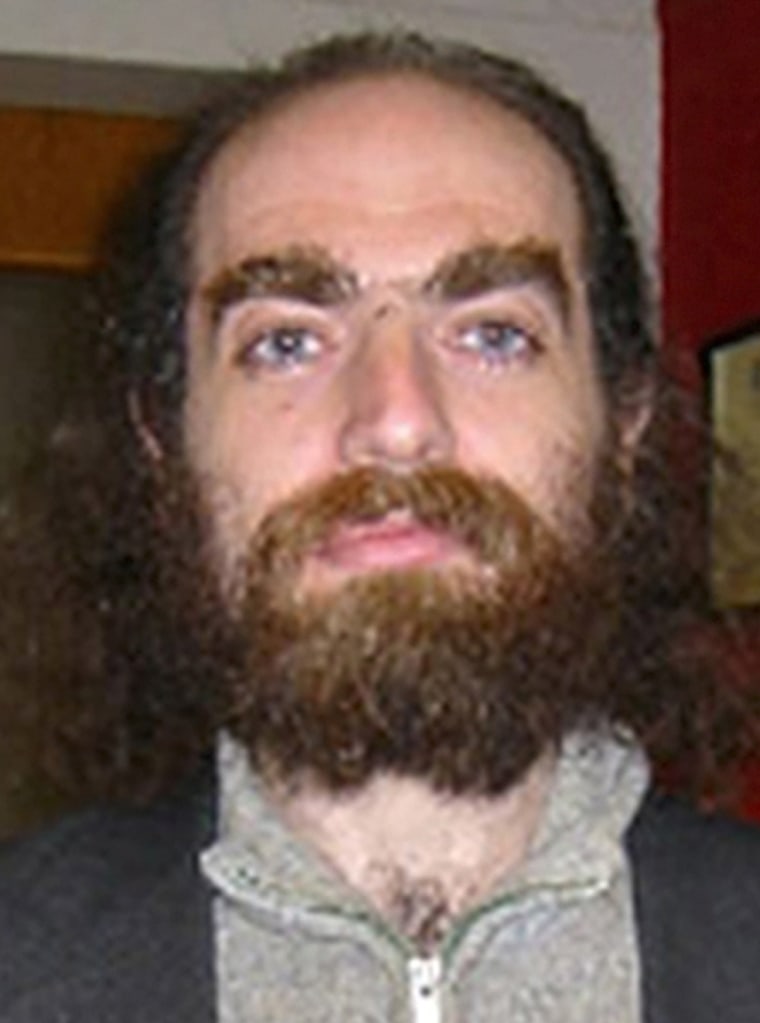Who doesn't want to be a millionaire? Maybe a 43-year-old unemployed bachelor who lives with his elderly mother in Russia — and who won $1 million for solving a problem that has stumped mathematicians for a century.
Grigory Perelman can't decide if he wants the money.
"He said he would need to think about it," said James Carlson, who telephoned Perelman with the news he had won the Millennium Prize awarded by the Clay Mathematics Institute of Cambridge, Mass.
Carlson said he wasn't too surprised by the apparent lack of interest from Perelman, a reclusive genius who has a history of refusing big prizes.
In 2006, Perelman made headlines when he stayed away from the ceremony in Madrid where he was supposed to get a Fields Medal, often called the Nobel prize of mathematics. He remained at home in St. Petersburg instead.
Still has time to decide
As for the new prize, Perelman told a local television station he hasn't made a decision on whether to accept the money, and that Carlson's institute will be the first to know when he does.
Sergei Rukshin, Perelman's high school math teacher, told The Associated Press on Monday that Perelman is still unsure whether to accept it.
"I know that this time he is seriously thinking about whether he will accept the prize. He still has some time," Rukshin said. The awards ceremony is in June.
Rukshin said Perelman has been without work for four years and has declined all job offers. He previously worked at the Steklov Mathematics Institute.
"As far as I know, after there was so much media attention ... he did not want to be a public person and to look like an animal in the zoo," Rukshin said.
He said he had encouraged Perelman to accept the prize to provide for himself and his elderly mother.
A done deal
Technically, the award is a done deal.
"He has been awarded the prize. That's the decision of the committee," Carlson said. "He may or may not accept the money."
Carlson declined to discuss what would happen to the $1 million if Perelman rejects it. Several groups in Russia, including the St. Petersburg Communist Party, have made public appeals to Perelman to give them the cash to fight poverty if he doesn't want it for himself.
Perelman was honored for proving the Poincare conjecture, which deals with shapes that exist in four or more dimensions, rather than the familiar three dimensions. The conjecture proposes a test for determining whether a shape in such space, no matter how distorted, is a three-dimensional sphere.
That was one of seven problems the Clay institute identified in 2000 as being worthy of a $1 million Millennium Prize. It's the first problem on the list to be solved.
The Clay institute was founded in 1998 by Landon T. Clay, a Boston businessman, and his wife, Lavinia D. Clay.
Absorbed student
Tamara Yefimova, a deputy director of Perelman's high school who has known the mathematician since he was a student there, said that once he started working on the Poincare conjecture he became totally absorbed in it.
She said Perelman stopped visiting his old school to help students and stopped attending meetings of the city's math society.
As a high school student, Perelman obviously was the most gifted student, Yefimova said. The only reason he didn't get a gold medal upon graduation, she said, was that the unathletic scholar didn't get the top grade in physical education. Perelman went on to earn college and postgraduate degrees in mathematics and mechanical engineering from Leningrad State University and Steklov Mathematics Institute.
"It could have been only him who would solve the Poincare conjecture," Yefimova said.
Indeed, Carlson said, Perelman's solution was "a truly amazing piece of mathematics."
Modest digs
Perelman lives in an aging three-room high-rise apartment with his mother and doesn't like to pick up awards he's won, money or not. What is going on here?
Dean Simonton, a psychology professor at the University of California, Davis, said the field of abstract mathematics can attract people who live in extreme isolation, are aggressively nonconformist and "too often let their personalities interfere with their professional success."
Thomas Greenspon, a Minneapolis psychologist who has long worked with gifted children and adults, speculated that Perelman may be reacting to growing up brilliant.
"It's easy to grow up feeling bad about yourself and maybe even feeling like a freak and sort of reacting accordingly," so social skills can suffer, he said.
Mathematicians will gather in Paris in June to celebrate Perelman's achievement and put on some kind of ceremony whether he's there or not.
Does Carlson care whether Perelman shows up?
"It would be nice," Carlson said. "But on the other hand, I respect his desire for calm and tranquility."
